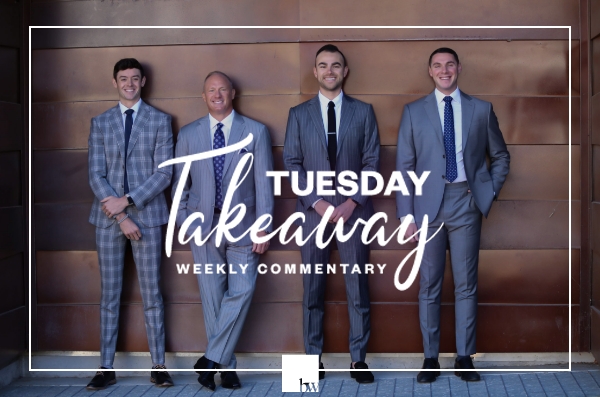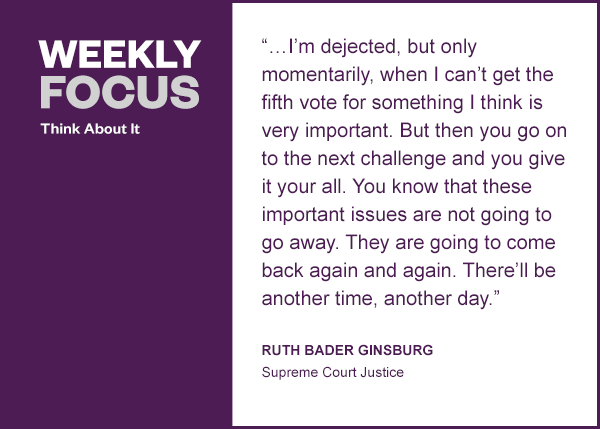
Market Insights:
January 2, 2024
Posted on January 02, 2024
Planning and Guidance, Tailored To Your Life and Goals
Tuesday Takeaway
Posted on September 23, 2020

Investors weren’t happy with central banks last week.
After the Federal Open Market Committee (FOMC) meeting, Federal Reserve Chair Jerome Powell confirmed the economy is recovering more quickly than anticipated:
“With the reopening of many businesses and factories and fewer people withdrawing from social interactions, household spending looks to have recovered about three-quarters of its earlier decline…The recovery has progressed more quickly than generally expected, and forecasts from FOMC participants for economic growth this year have been revised up since our June Summary of Economic Projections. Even so, overall activity remains well below its level before the pandemic and the path ahead remains highly uncertain…We remain committed to using our full range of tools to support the economy in this challenging time.”
Investors weren’t satisfied. Colby Smith of Financial Times reported stocks, “sold off sharply during Mr. Powell’s press conference on Wednesday, and again on Thursday,” because the FOMC did not provide information about “how it might adapt its balance sheet policy to generate…inflation and aid the U.S. economic recovery.”
The Bank of England (BOE) also delivered news that unsettled markets last week. Minutes from the BOE’s latest meeting noted it was studying negative interest rates. Some banks and analysts interpreted this to mean the bank intends to implement negative rates. Eva Szalay and Chris Giles of Financial Times reported, “People familiar with the matter said the preparations now under way were aimed more at fully understanding the effects of negative rates, rather than at seeking to implement them.”
It’s possible the BOE wants to better understand negative rates so it’s prepared for a worst-case scenario, such as the economic impact of COVID-19 containment measures combined with failure to reach a trade agreement with the European Union (EU), reported David Goodman and Lucy Meakin of Bloomberg. The EU trade deadline is fast approaching and, currently, no deal seems likely.
In the face of uncertainty, markets are likely to remain volatile.


On September 17, the 30th First Annual Ig Nobel Prize Ceremony was broadcast online. Here’s a fun fact: The 1995 Ig Nobel Ceremony was one of the first events videocast on the Internet.
The Ig Nobel Prizes “celebrate the unusual, honor the imaginative – and spur people’s interest in science, medicine, and technology.” The ceremony is organized by the magazine, Annals of Improbable Research, and is co-sponsored by the Harvard-Radcliffe Society of Physics Students and the Harvard-Radcliffe Science Fiction Association.
This year’s winning research explored ideas that make people laugh and think. The winning research included:
Anyone can learn more about why the researchers were exploring these ideas. Alternatively, 24/7 Ig Nobel lectures are available during which the winners explain their topics twice. First, they are asked to deliver complete technical descriptions in 24 seconds. Then, they try to offer clear summaries that anyone can understand in just seven words.

Since the Coronavirus hit and most people have been staying home as much as possible, our sense of time might feel more relative to how we’re structuring our days and what we’re focusing on. Time seems more subjective to most of us right now.
Fielding Cage recently wrote a Reuter’s article titled, “Why Time Feels so Weird in 2020” that explains why time is subjective, and offers interactive perception tests measuring your sense of time’s passing: https://graphics.reuters.com/HEALTH-CORONAVIRUS/TIME/gjnvwwjegvw/.
Through these interactive exercises, Cage explains why time seems to speed up or slow down, for a day or even a month, depending on our activity, emotions, and ability to concentrate.
To learn more about your personal sense of time by taking the simple and quick tests, explore the complete article here: https://graphics.reuters.com/HEALTH-CORONAVIRUS/TIME/gjnvwwjegvw/.
